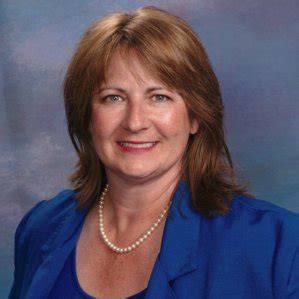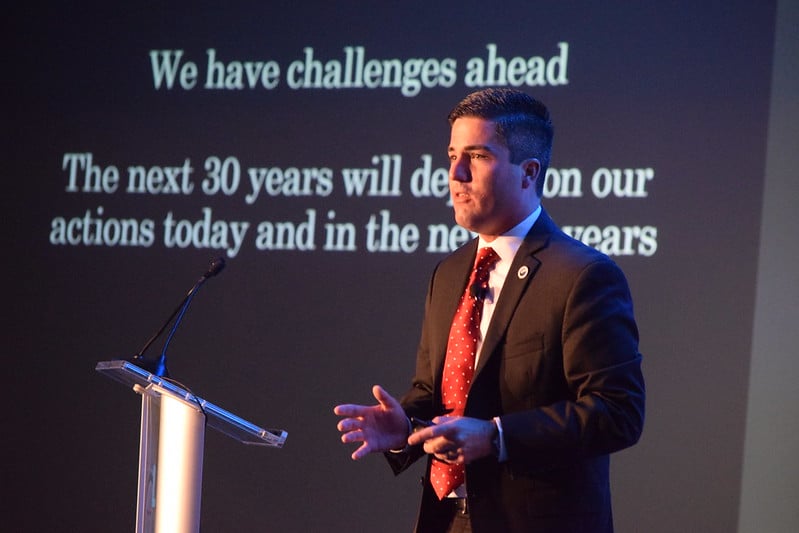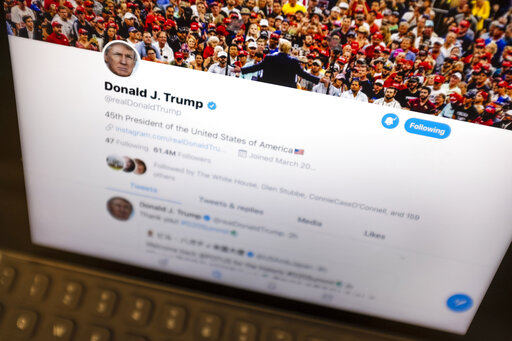Can government officials delete critical comments or block certain citizens from their social media pages without running afoul of the First Amendment?
This question has been presented in multiple lawsuits reaching federal appellate courts and one reaching the Supreme Court in 2024.
Citizens who have been blocked or had their comments deleted argue that the government officials are attempting to shut down or silence their opposing viewpoints in conflict with free speech rights. This, they say, amounts to government engaging in viewpoint discrimination in a public forum, which is prohibited under the First Amendment.
Government has the right to engage in its own expression and to control its message under the government speech doctrine, a doctrinal principle in First Amendment law that recognizes that government has the ability to be an active participant in the marketplace of ideas. Government officials also have a right to engage in their own expression.
But once a government agency or official creates a forum that allows people to comment and criticize, the agency or officials may run into First Amendment hurdles if either tries to censor those expressions.
Free-speech scholar Helen Norton explains in her book The Government’s Speech and the Constitution: “But once the government chooses a platform that permits public comment, it has created a type of forum for nongovernmental parties’ speech, and it is now bound by traditional First Amendment principles when regulating the speech of the commenters on the problem.” (55).
2nd Circuit Court: Trump couldn’t block critics on Twitter
In 2019, the 2nd U.S. Circuit Court of Appeals ruled in Knight First Amendment Institute v. Trump (2019), that President Trump violated the First Amendment by removing several individuals who were very critical of him and his governmental policies from the “interactive space” of his Twitter account. The appeals court agreed with a lower court that the interactive space associated with Trump’s Twitter account “@realDonaldTrump” was a designated public forum and that blocking individuals because of their political expression constitutes viewpoint discrimination.
“By blocking the individual Plaintiffs and preventing them from viewing, retweeting, replying to, and liking his tweets, the President excluded the Individual Plaintiffs from a public forum, something the First Amendment prohibits,” the panel wrote.
The president and his director of social media had argued that the president’s speech was private, as Twitter is a private platform for speech, not a state or governmental actor.
The Supreme Court, however, vacated the appeals court decision and sent it back to the 2nd Circuit with instructions to dismiss it for mootness. Trump was no longer president and Twitter eliminated his account in the wake of the attacks on the U.S. Capitol, barring him from using the platform anymore.
Justice Clarence Thomas in a concurring opinion in Biden v. Knight First Amendment Institute at Columbia University (the name of the case changed with a new president) noted Trump’s limited control over his account in light of Twitter’s ultimate authority.
Thomas thought it was less important to focus on Trump’s attempt to block respondents than on the power exercised by the platforms themselves. In Thomas’ words, “If the aim is to ensure that speech is not smothered, then the more glaring concern must perforce be the dominant digital platforms themselves.”
4th Circuit: School board member’s Facebook page was public forum
In a separate case, the 4th U.S. Circuit Court of Appeals in Davison v. Randall (2019) found that a local public official in Virginia created a public forum with her Facebook page. In this case, Phyllis Randall, chair of the Loudon County Board of Trustees, removed one of her constituents Brian Davison from her Facebook page. The court noted the distinction between this page, which was named “Chair Phyllis J. Randall,” and two other pages maintained by Randall — her personal page and a page devoted to her campaign.
Her “chair” page dealt with “numerous aspects of Randall’s official responsibilities. For example, Randall used the Chair’s Facebook Page to notify the public about upcoming Loudoun Board meetings, and the subjects to be discussed during those meetings. Randall also used the page to inform Loudoun County residents about significant public safety issues… Other posts by Randall to the Chair’s Facebook Page invited members of the public to apply to participate on a public commission and to participate in public meetings regarding key issues facing Loudoun County residents, such as revised flood plain zones and the Zika virus.” She invited public discourse, and many constituents commented on the posts.
The court ruled that the page was a public forum, and ruled that blocking Davison, who began posting about alleged municipal corruption, “amounted to viewpoint discrimination” violative of the First Amendment. “Put simply, Randall unconstitutionally sought to suppress Davison’s opinion that there was corruption on the School Board,” the 4th Circuit panel wrote.
8th Circuit: State rep's campaign Twitter account not a public forum
In January 2021, the 8th U.S. Circuit Court of Appeals ruled that a Twitter account of a Missouri state representative was not an official government account or used for government business, so blocking a user was not a violation of protected free speech.

The 8th Circuit ruled that Missouri state lawmaker Cheri Toalson Reisch’s Twitter account was not a government account and that she could block users without running afoul of the First Amendment.
In that case, Cheri Toalson Reisch established the account when she began her campaign for her office. After being elected, she used it to update constituents about her work and accomplishments. When one of her constituents, Mike Campbell, retweeted criticism of her, she blocked him from responding further.
Campbell argued that her use of the account was akin to the use by Trump and Davison, creating a public forum. But the 8th Circuit disagreed. It quoted the 2nd Circuit opinion that noted that “not every social media account operated by a public official is a government account.”
“Reisch’s account is fundamentally different from the accounts at issue in Trump and Davison. For one thing, official governmental activity was conducted on those accounts, whether it was President Trump announcing an appointee or conducting foreign affairs, or Chairwoman Randall coordinating her county’s response to a blizzard. Even if Reisch’s official duties as a representative extend beyond voting or participating in committee meetings and include things like communicating with constituents about legislation, her sporadic engagement in these activities does not overshadow what we believe was quite clearly an effort to emphasize her suitability for public office,” the 8th Circuit said.
The account is “more akin to a campaign newsletter than to anything else, and so it’s Reisch’s prerogative to select her audience and present her page as she sees fit,” the court concluded.
Supreme Court: Blocked citizen must show 'state action'

Port Huron City Manager James Freed deleted posts on his account by a citizen who was critical of Freed. In reviewing a First Amendment claim, the Supreme Court set a new standard on what constitutes 'state action' in which a government official can be held liable. (In this 2015 photo, Freed speaks at a Michigan Municipal League Convention, CC BY-NC-ND 2.0 DEED)
In 2024, the U.S. Supreme Court examined a case, Lindke v. Freed, in which the city manager of Port Huron, Michigan, deleted criticism from a citizen, Kevin Lindke, and blocked him from posting on the manager's Facebook page.
The city manager, James Freed, used the Facebook page for both posts about his job as city manager and his personal life. Freed had converted his profile to a public "page" and chose "public figure" for his page's category after he neared the platform's 5,000-friend limit.
Whether his action deleting a citizen's critical comments or blocking a citizen on the page amounted to viewpoint discrimination, violative of the First Amendment, depends on whether his use of the page amounted to "state action," the Supreme Court ruled.
A government official engages in state action on social media if (1) he or she had “actual authority to speak on behalf of the State on a particular matter,” and (2) if he or she “purported to exercise that authority in the relevant posts.”
The high court sent the case back to the 6th Circuit, vacating that court's ruling in favor of the city manager, and instructed the court that Lindke will have to show that Freed had the actual authority to make posts on behalf of the city in his role as city manager and that Freed exercised that governmental authority in the relevant social media posts.
"...Lindke cannot hang his hat on Freed's status as a state employee," wrote Justice Amy Coney Barrett. "The distinction between private conduct and state action turns on substance, not labels: Private parties can act with the authority of the State, and state officials have private lives and their own constitutional rights. Categorizing conduct, therefore, can require a close look."
She said that Freed must have the actual authority "in written law" to speak for the government or "longstanding custom" to speak for the city government.
Barrett also noted that in the case of a page that includes both government-related posts and personal posts, the courts must examine the individual posts as to whether they fall under the definition of state action. Blocking a citizen on a page-wide basis is different than deleting a comment on a specific post and "a court would have to consider whether Freed had engaged in state action with respect to any post on which Lindke wished to comment."
Noting the the risk of running afoul of censoring citizen's speech on social media based on their viewpoint, Barrett pointed out: "A public official who fails to keep personal posts in a clearly designated personal account therefore exposes himself to greater liability."
This article was originally written and published Jan. 8, 2020. It was updated by Deborah Fisher in March, 2024. Fisher is director of the Seigenthaler Chair of Excellence in First Amendment Studies at Middle Tennessee State University. David L. Hudson, Jr. is a law professor at Belmont who publishes widely on First Amendment topics.

